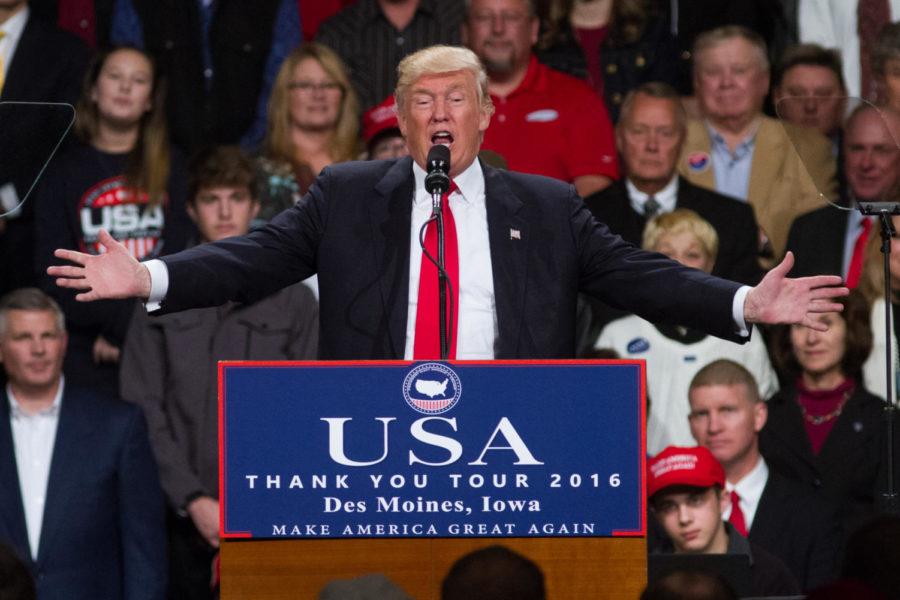Wright: Is increasing premiums the answer for a more sustainable health care system?
President-elect Donald Trump speaks during a rally as part of his USA Thank You Tour, in Des Moines during the evening of Dec. 8. Trump spoke about the general election, how he would repeal Obamacare, bring jobs back to the US, and reform care for veterans.
March 26, 2017
The voting result of the American Health Care Act is old news, but the implications of this non-event have been obsessively examined. Now that former President Barack Obama’s health care law is here to stay, the question shifts to what the Republicans will do with it.
Neither Democrats or Republicans are saying the program does not need great changes. A large portion of the health care companies that originally agreed to opt into the program are pulling out. All have cited that they are unable to meet the financial strain of the bill’s basic requirements. The penalty fee for opting out of the program has been the main source of unpopularity since day one.
Those on the left are quick to say that the best option from here is to replace it with a single-payer health plan. Obamacare relies on an awkward relationship between private insurance companies and the federal government. A single-payer health plan means that funding would entirely come from the government. Supporters argue this would be a much more stable and cost-effective plan.
Regardless, no one expected anything of the sort from this administration. That is not to say there are not reasonable options available. Broadly, they take the form of two political directions, and this is a choice President Donald Trump has already begun to acknowledge.
In a recent statement, the president threatened that premiums will take a sharp rise, as a result of the bill being unsustainable. In many respects, this has a strong degree of truth, as raising premium costs seems the only way to ensure that the remaining health care companies will continue to work within the system. The alternative is a situation where fewer plans are offered.
The element critics take issue with is the president’s accusation that the consequences fall on the Democrats. This sounds like an attempt to excuse the Republican Party from any issues that might arise due to their inaction. It’s not likely the American public will see that as an excuse, and it’s reasonable to believe Republicans know that.
First, what they could do is whittle the bill down to something more like the American Health Care Act, making it more cost effective and stable, at the expense of some people losing out on coverage. Regulations have already been relaxed as to what needs to be covered by a private insurer’s policies, and a vague relaxation of who needs to opt into the plan has been discussed.
On the other hand, raising the cost of premiums on those who can more easily afford them and making opting into the program mandatory for individuals would place strain on individuals and insurers, but this isn’t that far from what voters want. Provisions of the bill guaranteeing health care for the sickest and poorest Americans is a major source of the sentiment that pressured Congress to not repeal it. Furthermore, this would more closely resemble the original idea of Obamacare, which would have been more stable and beneficial for the poorest Americans.
















